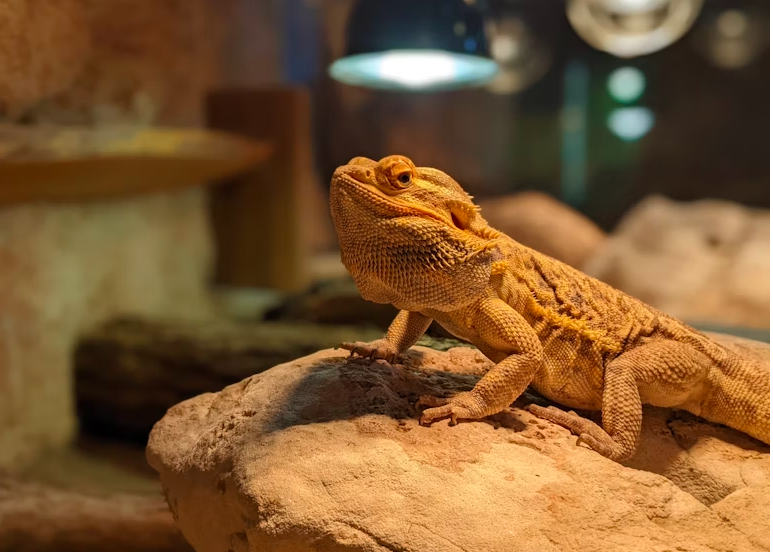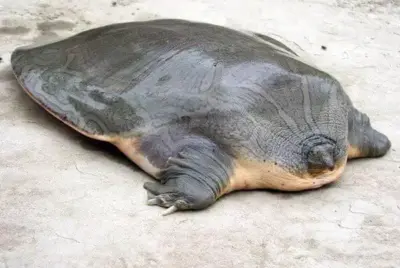How Often Do Bearded Dragons Poop? Bearded Dragon Health
As a bearded dragon enthusiast and advisor, I often come across questions about the digestive habits and bowel movements of these amazing reptiles. One of the most popular questions are: “How often do baby dragons poop?”
It’s essential to understand their normal bowel movement patterns and recognize signs of digestive issues to ensure their overall health and well-being. In this article, we will delve into the topic of how often bearded dragons poop and provide valuable insights into promoting a healthy digestive system.https://www.everydayhealth.com/digestive-health-pictures/icky-but-interesting-facts-about-poop.aspx
Introduction
Owning a bearded dragon comes with the responsibility of understanding and monitoring their bodily functions, including their bowel movements. While it may not be the most glamorous topic, it is an important aspect of their overall health. So, how often should you expect your bearded dragon to poop? Let’s find out.
Understanding Digestive System of Bearded Dragons
To understand the frequency of bowel movements in bearded dragons, it’s crucial to have a basic understanding of their digestive system. Bearded dragons are omnivorous reptiles, meaning they consume a combination of plant matter and protein sources. Their digestive system is designed to efficiently process and extract nutrients from their food.
Factors Affecting Bowel Movements
Several factors can influence the frequency of bowel movements in bearded dragons. It’s important to consider these factors to differentiate between normal and abnormal bowel habits.
Frequency of Bowel Movements in Healthy Bearded Dragons
Healthy bearded dragons typically have regular bowel movements. The frequency of their poop can vary depending on several factors, including age, diet, and individual metabolism.
Generally, adult bearded dragons will have bowel movements once every 1-2 days.
However, it’s important to note that there can be some variation, and as long as the poop remains within a healthy consistency and appearance, occasional variations in frequency are usually not a cause for concern.
What Does Baby Dragon Poop Look Like?
Appearance and Texture of Healthy Bearded Dragon Poop
Healthy bearded dragon poop should have a solid, formed appearance. It should be well-formed and hold its shape, resembling a cylindrical or oval shape. The color of the poop can vary depending on their diet, but it is typically brown or dark brown.
The texture of healthy poop should be firm but not too dry or too watery. It should have a slight moisture content, similar to the texture of Play-Doh. If the poop is too dry and crumbly, it may indicate dehydration, while overly watery poop can be a sign of digestive issues.
Odor of Healthy Bearded Dragon Poop
Healthy bearded dragon poop should have a mild odor. It may have a slightly earthy smell, but it should not have an overpowering or foul odor. If the poop emits a strong, unpleasant odor, it could indicate an underlying digestive issue or an improper diet. In such cases, it’s advisable to consult a reptile veterinarian for a proper evaluation.
What to Do if Bearded Dragons Poop Appears Abnormal
If you notice any significant changes in your bearded dragon’s poop, it’s essential to investigate further. We always to maximize the lifespan of our bearded dragon, and taking notice of abnormal-ties right away is part of how we do this. Abnormalities such as excessively watery or loose stools, extremely dry or hard stools, unusual colors (e.g., red, black, or green), or persistent changes in bowel movement frequency should be taken seriously.
In such cases, consider the following steps:
- Hydration: Ensure your bearded dragon is properly hydrated by providing fresh, clean water at all times. If necessary, offer a shallow dish of water for them to drink from or mist their enclosure to increase humidity.
- Dietary Evaluation: Review their diet and make sure it consists of appropriate foods for bearded dragons. A balanced diet rich in leafy greens, vegetables, and appropriate protein sources is crucial for their digestive health.
- Environmental Factors: Assess the temperature and humidity levels in their enclosure. Incorrect environmental conditions can affect their digestion and overall health. Ensure their habitat provides adequate heat, UVB lighting, and a suitable substrate.
- Veterinary Consultation: If the abnormality persists or if you observe other concerning symptoms such as lethargy, loss of appetite, or weight loss, it’s best to seek professional advice from a reptile veterinarian. They can conduct a thorough examination, perform necessary tests, and provide appropriate treatment if required.
By staying vigilant and knowledgeable about what constitutes healthy bearded dragon poop, you can actively monitor your pet’s digestive health. Remember to always provide a proper diet, maintain a suitable habitat, and seek veterinary assistance when necessary to ensure your bearded dragon’s well-being.
Signs of Bearded Dragon Constipation
Constipation is a common issue that can affect bearded dragons. It occurs when the stool becomes hard and difficult to pass. Recognizing the signs of constipation is crucial in providing timely intervention and preventing further complications.
Causes of Constipation
Constipation can have various underlying causes, including dietary factors, dehydration, inadequate heat, and lack of exercise. Understanding these causes can help you address the root of the problem.
Preventing Constipation
Prevention is always better than cure. Implementing certain measures in your bearded dragon’s care routine can help prevent constipation and maintain a healthy digestive system.
Promoting Healthy Digestion
Apart from preventing constipation, promoting overall digestive health is essential for your bearded dragon’s well-being. Here are some tips to support a healthy digestive system.
Diet and Hydration
A balanced diet is crucial for proper digestion and regular bowel movements. Providing a variety of nutritious foods and ensuring adequate hydration is key.
Providing Adequate Fiber
Fiber plays a significant role in maintaining healthy digestion. Including fiber-rich foods in your bearded dragon’s diet can help regulate bowel movements.
Exercise and Stimulation
Regular exercise and environmental stimulation are important for promoting a healthy digestive system. Encouraging physical activity and providing opportunities for mental stimulation can aid in maintaining regular bowel movements.
Environmental Factors
Creating an appropriate habitat with suitable temperature and lighting is essential for the overall well-being of your bearded dragon, including their digestive health.
When to Seek Veterinary Help
Despite your best efforts, digestive issues can sometimes occur. Knowing when to seek veterinary help is crucial to ensure the well-being of your bearded dragon. If you notice persistent constipation, changes in appetite, or other concerning symptoms, it’s best to consult a reptile veterinarian for proper diagnosis and treatment.
Conclusion
Understanding how often bearded dragons poop is an important aspect of their care. By monitoring their bowel movements, recognizing signs of constipation, and implementing preventive measures, you can promote a healthy digestive system for your bearded dragon. Just like our poop can tell us about our health, it is the same with animals.
Remember to provide a balanced diet, ensure proper hydration, encourage exercise, and create a suitable environment. If you have any concerns about your bearded dragon’s bowel movements, don’t hesitate to seek veterinary assistance.
FAQs
1. How often should a healthy bearded dragon poop? Healthy bearded dragons typically poop once every 1-2 days.
2. What should I do if my bearded dragon is constipated? If you suspect constipation, provide a warm bath to help stimulate bowel movements. If the issue persists, consult a reptile veterinarian.
3. Can a bearded dragon become constipated from eating certain foods? Yes, a diet lacking in fiber or excessive consumption of certain foods can contribute to constipation in bearded dragons.
4. Should I be concerned if my bearded dragon hasn’t pooped for a few days? If your bearded dragon hasn’t pooped for more than 2-3 days and shows signs of discomfort, it’s recommended to seek veterinary advice.
5. Are there any supplements that can aid in digestion for bearded dragons? There are digestive supplements available for bearded dragons, but it’s important to consult a veterinarian before introducing any new products into their diet.
Remember, each bearded dragon is unique, and their bowel movement patterns can vary. It’s essential to observe your pet closely, provide a suitable environment, and seek professional help when needed to ensure their optimal health and happiness.




